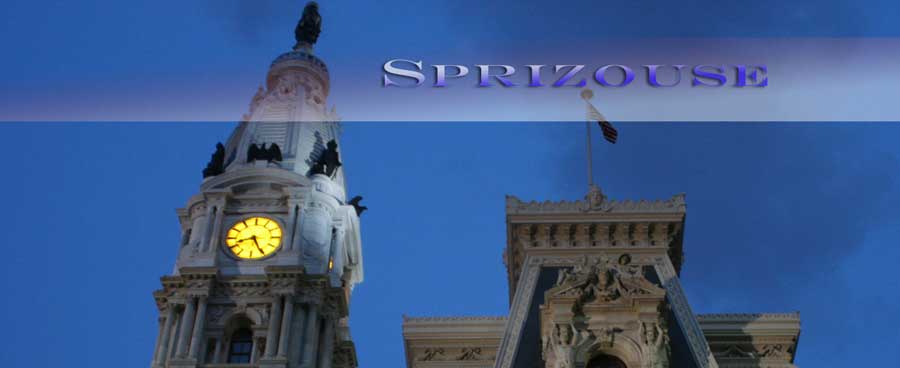Reports in the media (and most conservatives, natch) have been attempting to label the OWS movement as anti-capitalist, and the label seems to be catching on, but nothing could be further from the truth. What "We Are the 99%" clearly and directly signifies is that OWS is anti-oligarchy, not anti-capitalism. And anti-oligarchy is easily the best label for the movement.
Oligarchies have always been, and will always be, the greatest enemy of collective social good. Oligarchies concentrate power in the hands of the few, disempower the rest and impose their rule upon the masses. Throughout most of recorded history, oligarchies governed the masses directly -- as divine monarchs, as non-democratically-elected dictators, or as the heads of religious nation-states (and sometimes as a combination of all three).
Monarchies are nothing more than oligarchies that allow families to remain in power. Theocracies are oligarchies that allow a few, connected, true-believers to remain in power. Dictatorships are non-elected oligarchies that allow a few friends to remain in power through military force, police control and propaganda.
Oligarchies have always been, and will always be, the greatest enemy of collective social good. Oligarchies concentrate power in the hands of the few, disempower the rest and impose their rule upon the masses. Throughout most of recorded history, oligarchies governed the masses directly -- as divine monarchs, as non-democratically-elected dictators, or as the heads of religious nation-states (and sometimes as a combination of all three).
Monarchies are nothing more than oligarchies that allow families to remain in power. Theocracies are oligarchies that allow a few, connected, true-believers to remain in power. Dictatorships are non-elected oligarchies that allow a few friends to remain in power through military force, police control and propaganda.
But the enlightenment brought about the end of those types of oligarchic rule for western European nations and the United States. A transparent, representative democracy, with strict, unbreakable term limits, and inalienable human rights has forever removed the possibility of direct rule by a monarch or dictator. And the separation of church and state has forever removed the possibility of a theocracy coming to power by some state-issued decree.
But oligarchies refuse to die, and the power hungry will always seek more power. Having lost the ability to rule with military force, police control or government decree, capitalistic oligarchies instead try to rule by wealth. Thirty years ago the growing capitalistic oligarchy in the United States began using its small concentration of wealth to influence the government to favor it. The pro-oligarchy government of Reagan proved extremely pliable and the oligarchy grew more wealthy as the government titled playing fields in its favor. This larger concentration of wealth allowed the oligarchy to buy still more government influence, which allowed it to consolidate even more wealth and the cycle continued unabated for the last thirty years.
Our current oligarchy found corruptible, money-hungry politicians on both sides of the political aisle, but its strongest ally has undoubtedly been the modern GOP. In the last three decades the Republican Party has proven itself pro-oligarchy in absolutely everything it does--and not just in its capitalist wing, but in its theocratic wing as well (though often it seems GOP leaders pander to the theocrats). These two factions sometimes clash as the oligarchic heads of both groups try to assert and assume power over the other, but both have found a very sympathetic ally in the GOP; a political party that now proudly announces declares itself the defender of the powerful against the weak.
The GOP appointed a steady stream of pro-oligarchy federal judges who eventually ruled that powerful, oligarchic corporations (both foreign and domestic) could use their concentrated wealth, money and power to influence our democratic elections. The modern GOP has also proposed, and enacted, a never-ending stream of pro-oligarchy tax schemes that takes money from the poor to give to the rich. And Republicans have busted unions and removed the regulations that kept capitalistic oligarchies in check for nearly fifty years.
All of the GOP's pro-oligarchy deregulating, union-busting and regressive-lawmaking sabotaged the work that FDR, a traitor to his oligarchy, put in place. The rules, regulations and social programs instituted during his administration helped the United States experience the strongest two decades of economic growth in its history.
FDR, like millions of others, fought against the run-amok, capitalistic oligarchy because all oligarchies are unfair. All oligarchies destroy and damage social order. All of them make life worse, not better. All of them ruin lives. Which means that no oligarchy will be readily accepted by the masses without the strategic use of deception, lies, suppression of knowledge and propaganda. And the GOP-assisted, capitalist oligarchy's use of all four today is no different.
So beware when the oligarchy tells you that the OWS movement is anti-capitalist. Beware the oligarchy telling you that big government is what you should fear. Beware the oligarchy telling you not to rely on an ineffective government--especially when the oligarchy is the one that has worked so hard to make it so.
Remember that a transparent, representative democracy of the people, with strict, unbreakable term limits and inalienable human rights, has forever removed the possibility of direct rule over the masses by dictators and theocrats. And, since this is the case, remember that the oligarchy opposes progressive taxation, regulations, health care, strong unions and everything else it labels "big government" because those things are direct threats to the oligarchy's power, not yours.



